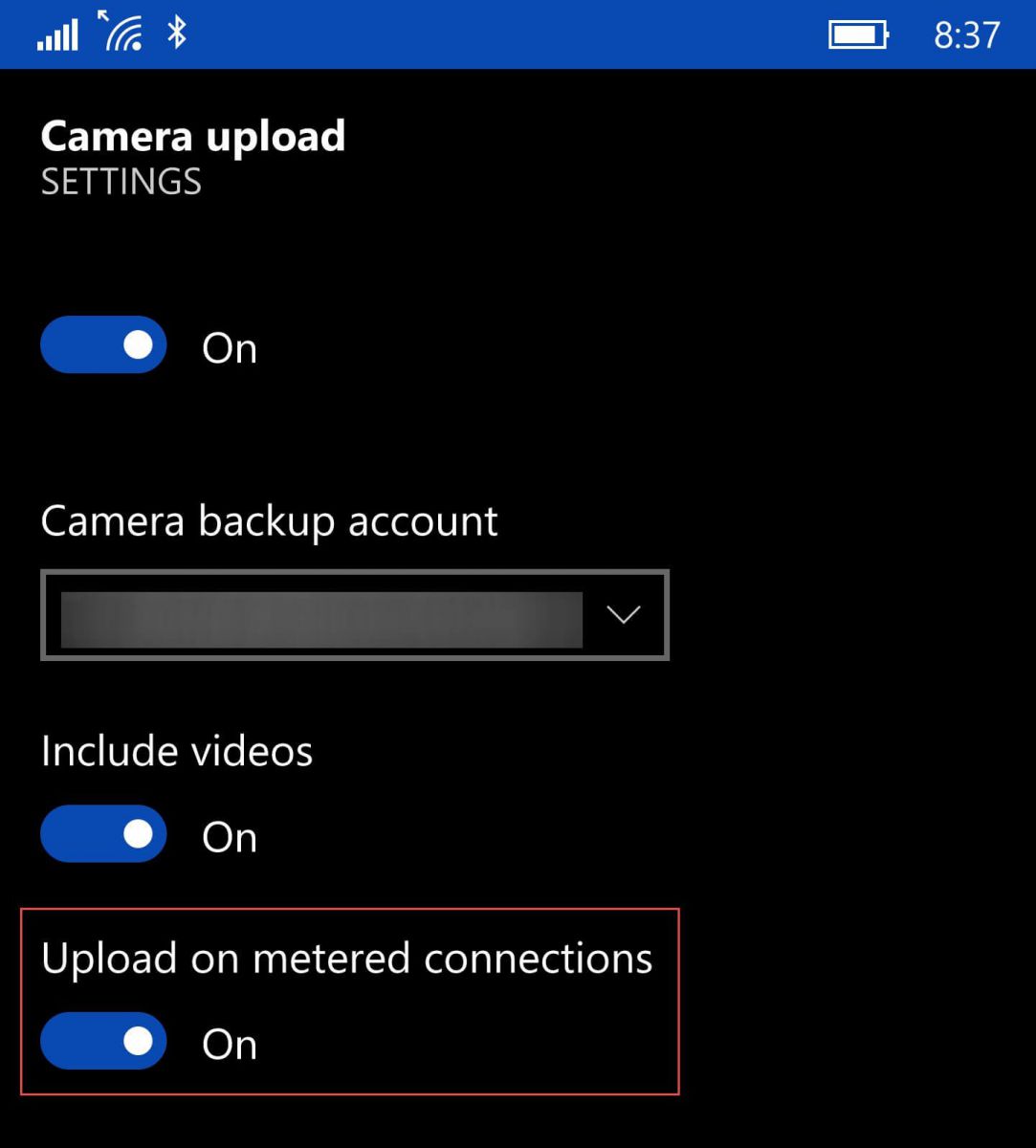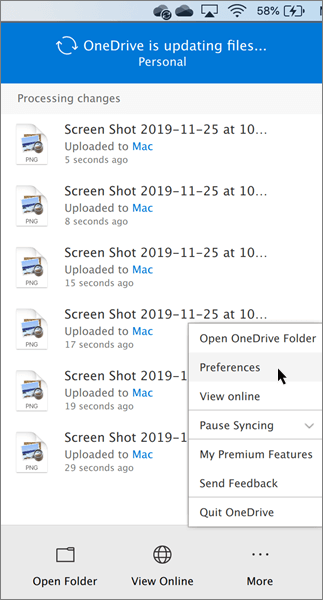

You will no longer be able to choose whether to turn on Files on Demand – it is mandated and will be on from the point of upgrade.


Onedrive for mac not syncing update#
When you update your macOS to v12.2 or 12.3 your OneDrive sync client will also be updated automatically. The new Files on Demand feature is available for all versions of Monterey from 12.1 upwards. The current version of Monterey (v12.2) is the last that will support the old technology. If you use macOS 11 (Big Sur) or earlier then this doesn’t affect you. Initially the changes apply to those with macOS 12 (Monterey). This is NOT a new feature, but the implementation and use is changing. The main change that you will see comes to the feature known as “files on demand”. ICT encourages you to update to the latest ICT supported version for your hardware at your earliest convenience to ensure that your system remains up to date with security and functionality patches and fixes. This means that the OneDrive sync client is going to change for Apple users, and has already started to for some.įor a while it means that there will be multiple versions in use depending on the version of the Apple OS that you are using. Uploading these files via Onedrive directly and downloading it via odrive sync works fine, though.Apple is changing the technology that they use within their operating systems and as such Microsoft, along with all other cloud storage providers have to update their sync clients. It has already tried to upload these files for several hundred times, moves them to the “not allowed” queue just to move them to the “waiting” queue. I don’t have wrong encoded filenames anymore, but upload still does not work)įurthermore, odrive is re-uploading all of these files over and over again. > Update: I think that was a mistake by me. Is there a reason for odrive to exclude files with Umlauts in it? This limitation pretty much forces me to go back to having all other cloud apps installed instead of using odrive.īy the way: Umlauts are also not correctly encoded within the “Waiting” Queue, they’re correctly encoded in the “Syncing changes” and “Not allowed” Queue. Renaming them would render my setup useless. I can’t upload them to Onedrive through odrive, though Onedrive (and the Onedrive client as well as pretty much every operating system since 1980) supports them perfectly. ä, ü - perfectly normal in Germany, for example). What’s with files with Umlauts in it? (ö. Currently, though, this isn’t something we would want to apply generally. At some point in the future we could provide customized character conversion to allow those that specifically want this type of augmentation. I realize that for your use case, the above considerations may not be a problem. We could use a more complex pattern, that is less likely to collide with original file names, but then the file name length starts getting larger, which is something else we don’t want to do. In your example it is %1, %2, etc, but files can have these character patterns in them, originally. You also have to be concerned with auto-renaming files that happen to match the pattern we decide to use.

This approach creates inconsistency across the platforms and clients and can cause confusion to users, especially in multi-user environments. On OneDrive desktop clients: “Unsyncable%1 blunt.rtf”.On OneDrive mobile clients: “Unsyncable%1 blunt.rtf”.On OneDrive web client: “Unsyncable%1 blunt.rtf”.On odrive web client: “Unsyncable%1 blunt.rtf” or “Unsyncable/ blunt.rtf”, depending on how we choose to handle rename logic on the web.On odrive Linux Agent: “Unsyncable/ blunt.rtf”.
Onedrive for mac not syncing windows#
On Windows odrive: “Unsyncable%1 blunt.rtf” ("/" is not allowed in a file name).There are several complexities to doing it.įor your example of “Unsyncable/ blunt.rtf” there would be a variety of results, depending on the client: This type of auto-renaming mechanism is not something we want to do, at this time.


 0 kommentar(er)
0 kommentar(er)
